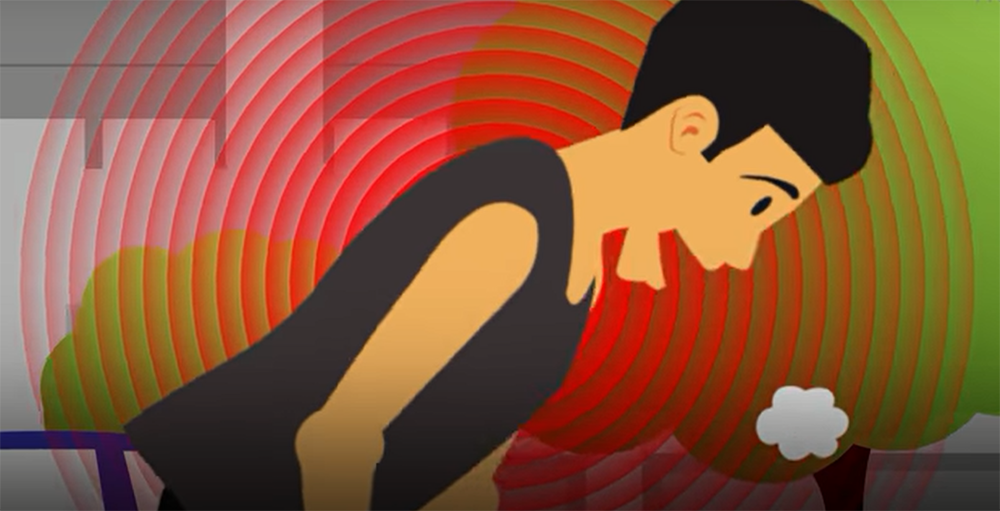We all know that running is a great way to get in shape, but sometimes it can be really hard. It seems like no matter how much we run, we can’t seem to lose weight or improve our endurance. In this blog post, we will explore some of the reasons why running can be so hard, and offer some tips on how to make it a little bit easier.
Why is running so popular?
There are many reasons why running is such a popular activity. Some of them are:
- It is free – you just need some comfortable clothes and shoes. Save your money for other things.
- It is easy to start running – all you have to do is put on your shoes and go out the door. You don’t need any special equipment or training, just turn left and walk for a few minutes until you feel like turning around and walking back home again.
- It gets you outside – running gets you out into the fresh air and sunlight. It also gives you a chance to see things from your neighborhood that you would normally miss while sitting inside at work all day long.
- You don’t have to be in great shape – if you can walk for two miles without stopping, then chances are good that with some practice you can start running without any problems.
- It is a great way to stay in shape – running isn’t just good for your cardiovascular health, it also helps keep your muscles and joints strong. And once you get into a regular routine, it’s easy to maintain your weight and improve your fitness level.
- You can do it anywhere – you don’t even need a gym membership or any fancy equipment to get started running.
- It is fun! Running is one of the most enjoyable activities there is, and it’s easy to see why so many people enjoy this sport.
- You can do it with friends – running allows you to be social while getting in some exercise at the same time.

- You can do it with your dog – running allows you to enjoy spending time with your pet.
- It is easy on your joints – unlike other forms of cardio like biking or swimming, running places less stress on your knees and ankles because there’s no impact from repetitive jumping.
- You can wear whatever you want – unlike other sports, there are no special clothes required to go running. Just put on your favorite t-shirt and shorts and you’re good to go.
- You don’t need special equipment – unlike other sports, you don’t need any special equipment to start running. Just find a pair of shoes and hit the pavement!
So, If you’re looking for a way to get in shape, improve your cardiovascular health, or just have some fun, then consider starting to run today!
Why is Running So Hard?
If you are a runner, then you have experienced the pain of running. You may even be thinking about giving up your running habit because it is so hard. Maybe you have tried to run and found that it was just too difficult for you to continue on. And perhaps if someone has told you how easy it is to get started and continue with running, you may be even more discouraged.
There are many factors as to why running can be hard. But before we get into the reasons, let’s first understand how our body responds when we run.
- When we start running, our body goes through a process called glycogenolysis which is the breakdown of glycogen (stored glucose) into glucose. This glucose is then used by our muscles as energy to help us run. However, this process also produces lactic acid which is the main contributor to muscle pain and soreness after running.
- In addition, when we are running, our heart rate increases in order to pump more blood (and oxygen) to our working muscles. This increased heart rate can be a challenge for some people, especially those who are not used to running.
All of these factors can make running difficult and painful.

The hardest part about running is getting out the door. Once you are actually on your run, it usually feels good. But then you finish your run and the real challenge begins.
You have to motivate yourself to get dressed and go for a run. And then you have to fight the temptation to sleep in or take a nap after your run. You also have to resist the urge to eat unhealthy foods that will only make you feel bad later on.
It is not easy, but it is worth it.
Are you ready for running?
One more reason is that your body may not be ready to run.
You may think that because you can walk, you can run. But running is actually much harder on your body than walking. When you are running, your feet hit the ground with twice as much force as when you are walking. This repeated pounding can cause pain in your feet, legs, and back.
Very often people start running without first building up their endurance. They try to run too fast or too far and end up getting injured.
- It is important to start slowly and gradually increase your running distance.
If you are not in good shape, you may also find running difficult because it is a very strenuous exercise. Your body has to work hard to pump blood and oxygen to your muscles, and this can be tiring.
You may also find that you get out of breath quickly when running. This is because your lungs have to work harder and faster than when you are walking or jogging.
- The more you run, the easier it will be for your body to get oxygen into your muscles.

Some people find that they get tired after just a few minutes of running. This can be frustrating, especially if you want to run for longer or faster.
The best way to get around this is by starting slowly and building up your endurance over time. You might try running for one minute, then walking for one minute until you are ready to run again.
- Remember that if you want to build up stamina and strength in your legs, it’s important that they stay as strong and flexible as possible.
The next time you go for a run, try running at a slower pace or distance than usual so that your body has time to adjust itself before increasing its speed again. You’ll find that this will help keep you from getting tired too quickly and make running easier overall.
Finally, it’s important to listen carefully when you are running! If you begin breathing heavily or feel any pain in your legs or chest, stop running immediately and take a break before continuing on with your run later that day (or even the next). This will help prevent injury as well as improve your fitness level over time!
- If none of the above tips work for you, try running at night instead of during the day. Running in darkness is much easier on your body than running under bright lights because there aren’t any distractions from other things around you such as traffic noise or people talking nearby.

You might also consider joining a local running group where everyone is around the same fitness level as yourself – this will help keep motivation levels high while giving you some new friends too!
If you are not in good shape, start out by walking instead of running. Build up your endurance slowly so that your body can adapt to the stress of running. And be sure to wear the right shoes for your feet!
If all else fails, take it easy! Don’t push yourself too hard, especially if you are new to running. Remember that it takes time to get in shape and running is a very strenuous exercise. Pace yourself, drink lots of water, and be patient – you’ll be running like a pro before you know it!
Is running supposed to be hard?
One of our readers has left a comment: I’ve been running a lot lately and it seems like every time I go out, it feels really hard. Am I doing something wrong? Is running supposed to be this difficult?
It turns out that there are a few things going on when it feels tough to run. One is the fact that we tend to breathe more shallowly when we’re running, which can make it harder to get enough oxygen. Additionally, our muscles are working hard and so they can start to feel tired pretty quickly.
But the good news is that with a little practice, you can learn how to make running feel easier. One thing you can do is focus on taking deep breaths, which will help you to get more oxygen. You can also try to take a few walk breaks during your run, which will give your muscles a chance to rest.
Over time, as you continue to practice running more frequently and for longer periods of time, it will start to feel easier. And eventually, it won’t feel hard at all!
And finally, don’t be afraid to slow down if you need to – there’s no shame in running at a slower pace! Just focus on enjoying the time spent outside with fresh air and sunshine.
Why do I still not feel love for running?
Running is one of the most simple, straightforward exercises. It’s also one of the hardest and has a high rate of failure.
I don’t know why that is but it seems we’re all held back by something whether mental or physical. One thing I do know is that running can have positive effects on your body and mind if you’re able to stick with it.

I started running in the seventh grade when I joined cross country for the first time and fell instantly in love with it! But as time went on, I stopped putting effort into training because of schoolwork or being too tired from other activities like band practice. Running became a chore instead of something enjoyable like before.
Eventually, I got back into running in my late twenties and started to see some positive changes. I was sleeping better, had more energy, and felt better overall. However, this time around it was still really hard to get motivated to run sometimes. It would take a lot of mental effort for me to push myself out the door for a run.
I think the reason running is so hard for a lot of people is because it’s not an easy activity to do. It takes time, effort, and patience to be able to run long distances without stopping. And unlike other exercises like weightlifting or biking, you can’t really cheat your way through a run. You have to actually run the whole time!
That’s why it’s important to find a running routine that you enjoy and can stick with. There are plenty of different programs out there. Or, if you’re looking for something more tailored to your needs, you can always hire a personal trainer!
No matter what, just remember that running is not an easy sport. It’s going to take a lot of time and patience before you see any results. But the payoff will be worth it in the end!
How do I stop feeling tired after running?
There are a few things you can do.
- First, make sure you’re well-hydrated before and during your run. Drink plenty of water before and during your run. Also, make sure you’re eating enough food. If you’re not getting enough calories, your body will start breaking down muscle tissue for energy, which can make you feel tired. And get enough sleep!
- Second thing is to warm up before and after your runs by stretching or walking briskly for five minutes at a slower pace than what you’re used to running. It will help loosen up muscles in the legs and prevent injury as well.

- The third thing is making sure you have good form during your run. If you don’t, it’ll make it harder for you and make you more tired.
- The last thing is to make sure you’re running at the right pace for yourself. If you’re running too fast, you’ll quickly become exhausted. Try starting out slower and building up speed as your body gets used to running.
These are some tips on how to stop feeling tired after running. By following these tips, you’ll be able to run longer distances without feeling exhausted.
The Challenge of Running: Why is it So Hard?
Running is a physically and mentally demanding activity. Here’s a breakdown of why running can be so challenging, along with its associated benefits.
| Aspect | Description | Benefits |
|---|---|---|
| Physical Demands | Running places significant stress on joints, muscles, and the cardiovascular system. It requires endurance, strength, and proper technique. | Improves cardiovascular health, strengthens muscles, aids in weight management. |
| Mental Challenges | Endurance running can be mentally tough, requiring focus, determination, and the ability to push through discomfort. | Enhances mental resilience, reduces stress, boosts mood, and provides a sense of accomplishment. |
| Benefits | Running offers numerous physical and mental health benefits, including improved fitness, weight loss, stress reduction, and a sense of community. | Enhances overall well-being, fosters a sense of achievement, and can be a social activity. |
Explanation of the Table:
- Aspect: Lists key aspects related to the challenges and benefits of running.
- Description: Provides an explanation of why running can be challenging and the associated physical and mental demands.
- Benefits: Highlights the positive outcomes and advantages of engaging in running as an activity.
Running is considered difficult due to its physical demands, requiring endurance, strength, and proper form. Additionally, it can be mentally challenging, as it demands determination and the ability to push through discomfort. However, the benefits of running, both physical and mental, make it a rewarding and worthwhile activity for many individuals.
Running not only improves physical fitness but also contributes to mental resilience, stress reduction, and a sense of achievement. It can be a powerful tool for enhancing overall well-being.
FAQ
How long does it take for running to get easier?
Running does not get easier, you just go faster. Because your body adapts to the stress of running and is capable of repairing itself better than before. You become a stronger runner because your bones, tendons, muscles, and cardiovascular system all improve with training. Running becomes physically easier as you gain fitness and strength but it never gets mentally easy.
How do you run without getting out of breath?
There’s no one way to run without getting out of breath. It is possible, however, to reduce the amount you get out of breath while running by gradually building up your fitness so that you can finally run a whole mile or more without stopping. The key here is to start slowly and build up gradually. You won’t get out of breath if you go too slow but it might not be enjoyable either because running should always be fun!
Why can’t I run far?
Your body needs time to adapt to the stress of running. It’s important not to push yourself too hard in order for your muscles, bones, and heart to strengthen so that you can run further than before. Start by walking first then gradually build up speed until finally adding some short periods where you jog or run at faster paces (but still slower than race pace). This will help build endurance over time!
Is it normal to be out of breath while running?
It is normal to feel shortness of breath while you’re running. This happens because your body needs oxygen, which becomes depleted when exercising at a high intensity for long periods. In order to prevent this from happening again next time try starting off slower and building up gradually over time so that you can eventually run without getting out of breath anymore.
Should I breathe through my mouth or nose when running?
You should be breathing through your nose while running because it filters the air and warms up before entering into the lungs where oxygen exchange takes place with our blood cells to produce energy for exercise.
What physiological factors make running a challenging activity?
Running can be challenging due to several physiological factors. One key factor is the high demand for cardiovascular endurance. When you run, your heart rate increases to supply more oxygen to your muscles. If you’re not in good cardiovascular shape, your heart and lungs have to work harder, making running feel difficult.
Why do muscles often feel fatigued during a run?
Muscle fatigue during running is common because your muscles work intensely to propel your body forward. Running engages various muscle groups, and when they’re not conditioned, they can tire quickly, causing discomfort and making running seem harder.
How does running impact joints and bones, contributing to its difficulty?
Running is a high-impact activity that places stress on your joints and bones, particularly in your lower extremities. Over time, this stress can lead to discomfort or injury, especially if you don’t have proper running form or if you’re running on hard surfaces. Joint and bone discomfort can make running feel more challenging.
Why is pacing and breathing control essential in making running feel easier?
Pacing and controlled breathing are crucial aspects of running. If you start too fast or don’t regulate your breathing, you can quickly become out of breath, making the run feel much harder. Learning to control your pace and breathe rhythmically can improve your running experience.
How does mental endurance play a role in the difficulty of running?
Running is not just a physical challenge; it’s a mental one as well. Many runners struggle with motivation, self-doubt, or boredom, which can make running feel harder. Developing mental endurance, focus, and a positive mindset can help alleviate some of these challenges.
What can beginners do to make running feel less challenging?
Beginners can take several steps to make running feel less challenging. These include starting with a manageable pace and distance, gradually increasing intensity, ensuring proper footwear, and incorporating strength training and stretching into their routine. Additionally, staying consistent with training can help the body adapt and make running feel easier over time.
Useful Video: Why Running Is So Hard? | Things You Need To Know About Run Training
Final Thoughts
Running is hard. There’s no denying it. But why is it so hard?
There are many reasons why running can be tough, but the main reason is probably that it’s a challenging workout. It takes a lot of effort to run for even a short distance.
Running also requires a lot of stamina and endurance, which not everyone has. It can be tough to keep running when your body is begging you to stop.
But the main reason why running is so hard is probably that it’s just really challenging. It takes a lot of effort to run even a short distance, and that effort can be tough to sustain. If you’re looking for a challenging workout, running is definitely the way to go – but it’s not for everyone.
If you’re struggling with running, don’t give up! It takes time and practice to get good at running, but eventually, you will improve. And don’t forget to take care of your body – make sure you are eating well and getting enough rest.
Running is hard, but it’s worth it! Keep pushing through the tough times, and you will see amazing results. Happy running!
I hope this article has been helpful! If you have any questions, please don’t hesitate to ask in the comments section below. And be sure to check out my other articles for more tips and advice on running.
Thanks for reading!










Leave a Review